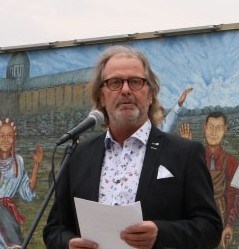YORKTON - A hot running economy means the Saskatchewan government was able to release its 2023-24 Provincial Budget, with a projected $1.0 billion surplus.
Revenue of $19.7 billion is forecast in the 2023-24 Budget, up $2.5 billion or 14.7 per cent, from last year's budget. The higher revenue forecast is largely due to $9.6 billion in taxation revenue, a $1.5 billion increase over last year with Corporate Income, Personal Income and Provincial Sales Tax revenue reflecting a strong economy.
"Saskatchewan is growing at its fastest pace in more than a century," said Finance Minister Donna Harpauer in a recent release.” This budget is designed to ensure that growth continues and that it's growth that works for everyone."
There are no tax increases and no new taxes included in this budget, helping keep life affordable for Saskatchewan people. When taxes, utilities and housing costs are combined, Saskatchewan is the most affordable place to live in Canada for a family of four.
Yorkton Mayor Mitch Hippsley said he was surprised by the budget in the sense the province is using surplus dollars to address the debt, which he said is prudent.
“It costs lots of money to borrow money,” he said, adding eliminating some debt is good business.
Hippsley said too often it’s a case of “getting a dollar, spending a dollar,” added “I think and I hope they’re managing the money better.”
The budget includes the highest level ever of Municipal Revenue Sharing - $297.9 million, an increase of $35.3 million or 13.4 per cent, from last year's budget. The budget includes $503 million of direct provincial support to municipalities, an increase of $54.5 million or 12.2 per cent over last year's budget, primarily due to higher revenue sharing, the provincial portion of infrastructure funding and a number of grants and initiatives from across government.
Yorkton Councillor and SUMA president Randy Goulden said of course the increase in revenue sharing is positive.
“We’re pleased to see the increase in Municipal Revenue Sharing,” she said.
But, Goulden said the added money isn’t quite as significant as it might seem, noting municipalities used to be exempt from PST on building projects, but the province changed that and that has meant municipal dollars now flow, in part right back to the province.
For example, Yorkton is embarking on a reconstruction of York Road that they have pegged at $17 million, but are also expecting it to be more costly, said Goulden. The province could see $1 million in PST before the project is complete.
There is a need to change that back to where municipalities are exempt, said Goulden.
“It’s a continued advocacy we have to have because of the impact it has,” she said.
And of course, there is the impact of inflation that influences what can be done with any amount of money, noted Hippsley.
The Yorkton Mayor also noted it wasn’t so many years ago revenue sharing was based on one per cent of PST revenue, but the current government pared that back to 0.75 per cent of PST when the provincial books were not as healthy as they are today.
In terms of municipalities, Hippsley said city mayors, SUMA and SARM have all been lobbying for changes to SAMA citing issues encountered with property assessment deemed to be unfair in too many situations.
But, in the recent budget the province has maintained funding for its provincial assessment agency at the same dollars.
“It’s not good. That should not have happened,” said Hippsley, adding this was the time to invest more in SAMA to address municipal concerns.
Goulden said what seems most needed in terms of the province and its relationship with the more than 700 municipalities is consultation ahead of the province making decisions.
“There needs to be protocols for consultation before the decisions have been made,” she said.
This budget delivers a 6.7 per cent increase to the Ministry of Health to $6.9 billion.
Within the details is an addition $200,000 for the design of a new regional hospital in Yorkton, which Hippsley sees as a sign the facility is inevitable.
“I do believe the hospital is coming sooner than later,” he said, adding “it’s not a want, it’s a need.”
The budget invests $518 million into mental health and addictions programs and services, including a targeted investment of $12.4 million over last year, representing the highest investment ever in Saskatchewan for these programs and services. Mental health and addictions funding now makes up 7.5 per cent of overall health spending.
Hippsley, who chairs the province city mayor’s working group on mental health and addictions said the added dollars are a positive for a growing area of concern among all cities.


.JPG;w=120;h=80;mode=crop)



